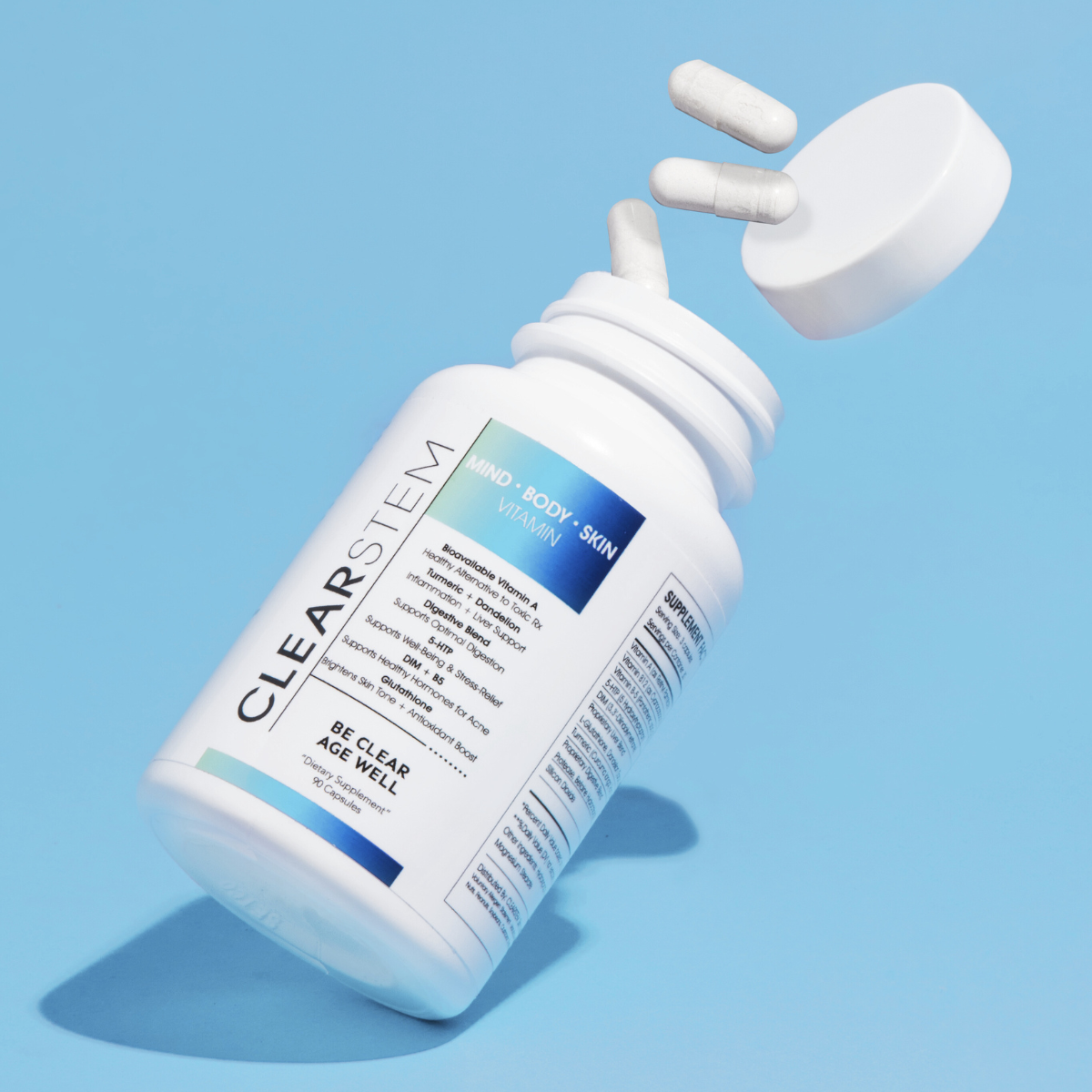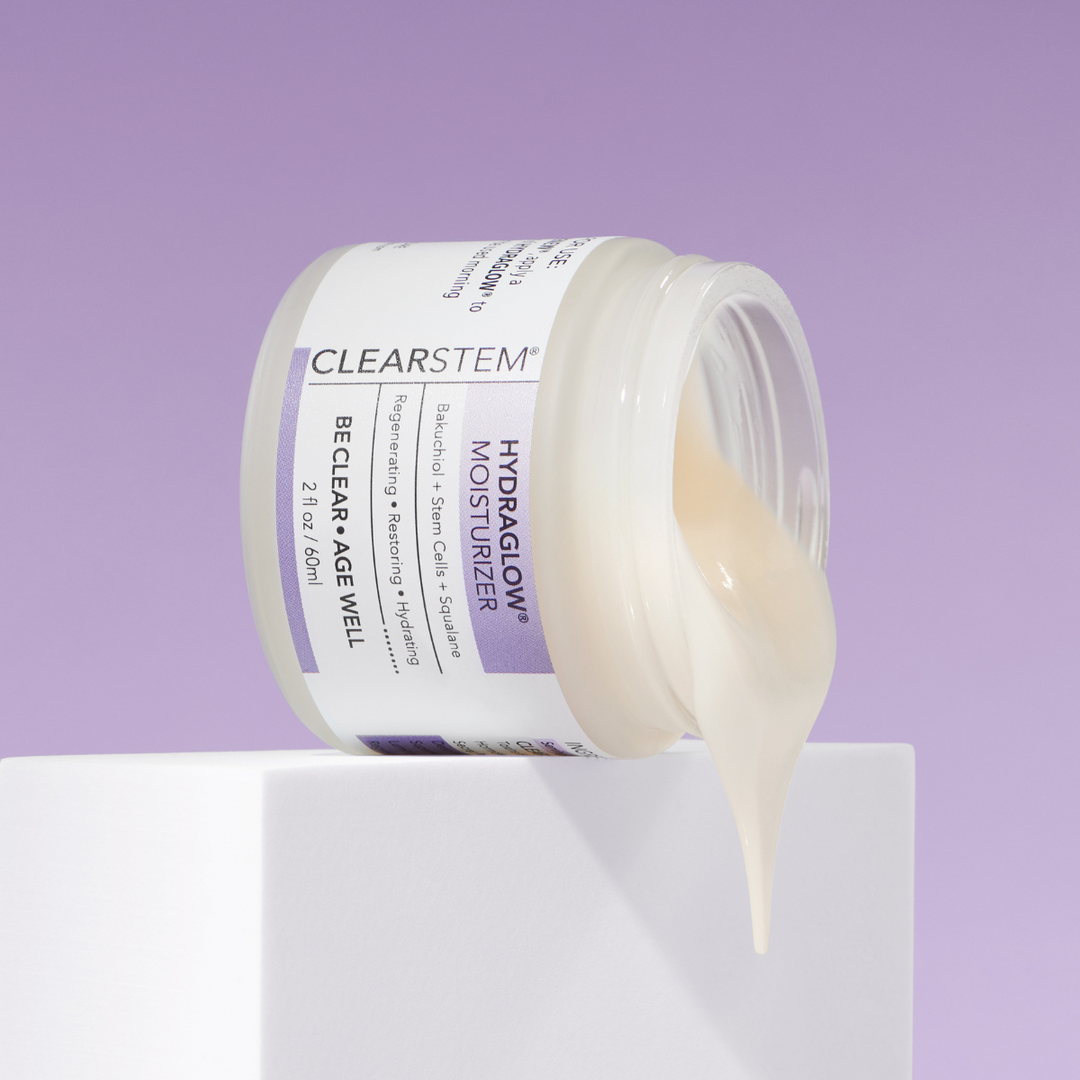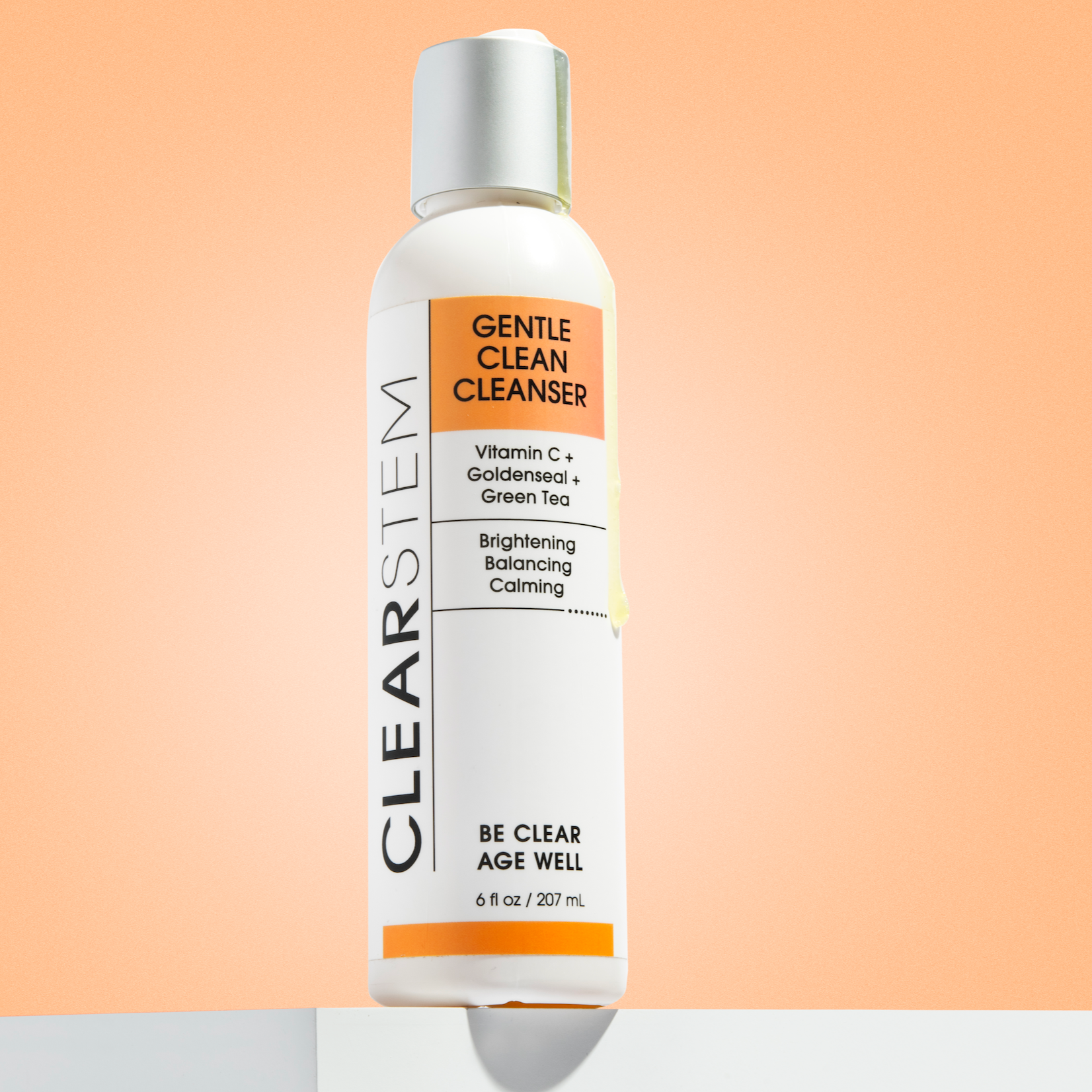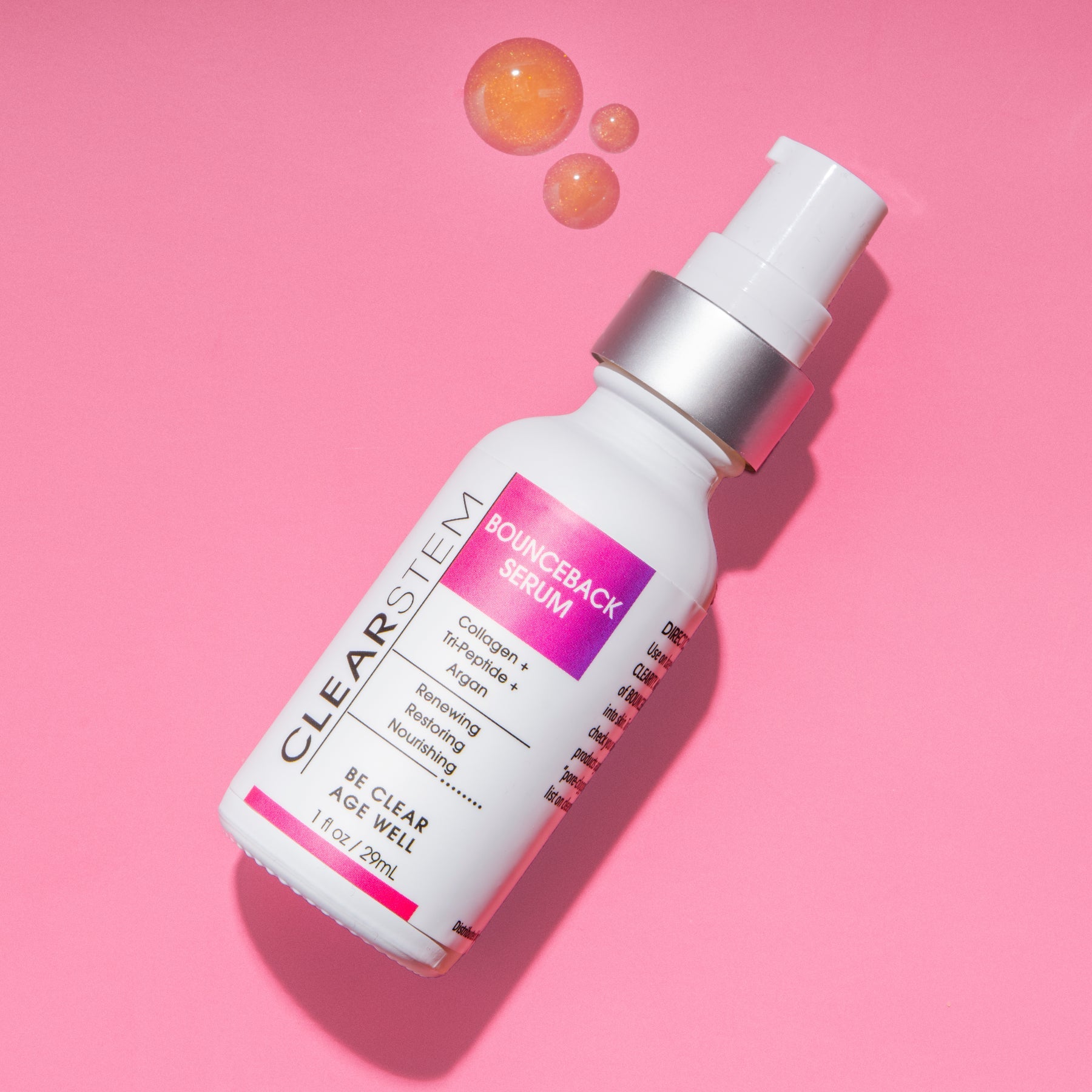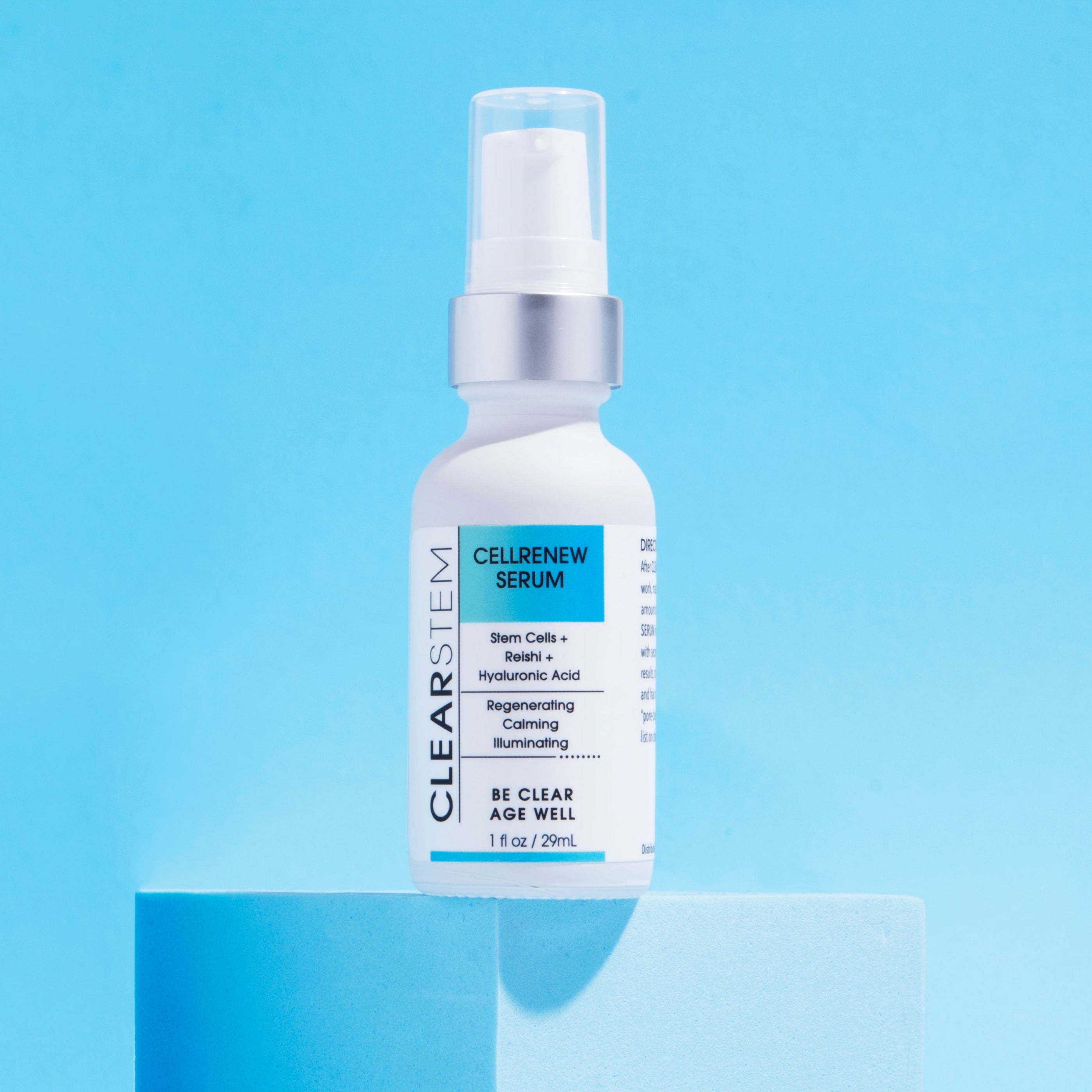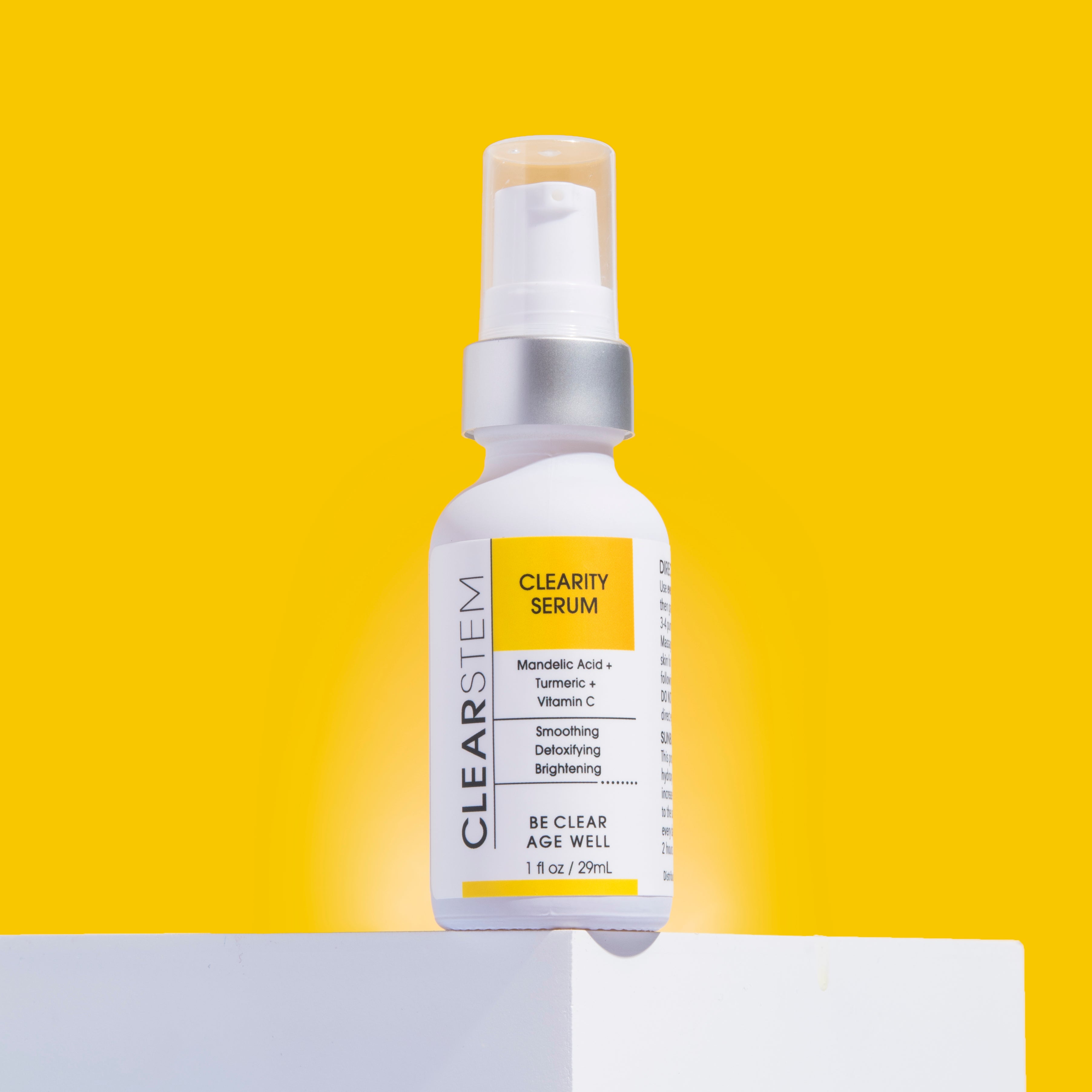Just as the eyes are a window to the soul, your skin is a window to your overall health.1 From dark under-eye circles to signs of premature aging, your skin can shed light on your sleep quality, sun protection practices, hydration levels, and daily habits. Some skin issues may even indicate nutritional deficiencies.
Unfortunately, the majority of Americans don’t meet all of their daily micronutrient requirements.2 Even worse? These deficiencies can have a wide range of skin manifestations.
So, what are some common skin vitamin deficiency symptoms? In this article, we’ll examine the connection between nutrient deficiencies and skin health. We’ll also provide some tips and tricks to ensure your skin is getting all of the vitamins and minerals it needs.
The Most Common Vitamin Deficiencies
To start, let’s take a look at the most common vitamin deficiencies in the United States.
Americans are most frequently deficient in the following vitamins3:
-
Vitamin D – Vitamin D deficiency is rampant in the U.S.—a whopping 94.3% of the U.S. population doesn’t get their daily recommended requirement of vitamin D.2
This important vitamin can be found in a relatively limited number of foods—fatty fish, fish liver oils, egg yolks, beef liver, cheese, and mushrooms are the best dietary sources. Vitamin D can also be synthesized from the sun’s UV rays, though many people spend most of their days indoors.4 If you have a vitamin D deficiency, you may want to consider supplementation. However, it’s important to keep in mind that too much vitamin D can cause acne in some individuals.
- Vitamin B6 – Vitamin B6 helps the body break down proteins, carbohydrates, and fats. It also supports healthy immune and brain function.5 A recent study found that nearly 13% of Americans are deficient in this vitamin.6 Vitamin B6 can be found in tuna, salmon, beef liver, fortified cereals, chicken, fish, chickpeas, potatoes, bananas, tofu, nuts, dark leafy greens, oranges, and papayas.
- Vitamin B12 – Vitamin B12 is responsible for forming red blood cells and DNA. It also plays a key role in brain and nerve cell function and development.7 Vitamin B12 is primarily found in animal foods, such as meat, poultry, fish, and dairy. As a result, vegans typically need to supplement with vitamin B12 to stave off deficiency. With that being said, be cautious when adding a supplement into your routine, as vitamin B12 can cause acne when taken in high doses.
Vitamin B12 deficiency also becomes more prevalent with age—while just 6% of Americans under the age of 60 are vitamin B12 deficient, nearly 20% over 60 lack sufficient levels.8
These are the most common nutrient deficiencies, but they’re certainly not the only ones. A notable number of Americans are also deficient in iron, calcium, magnesium, omega-3 fatty acids, vitamin A, and vitamin C.9 If you think you may be suffering from a nutritional deficiency, talk to your doctor about doing functional lab testing.
What Are the Signs of a Vitamin Deficiency
Since nutrient deficiencies are so widespread, you may be wondering how to tell if you have one. Different types of deficiencies can lead to different vitamin deficiency skin symptoms.
With that in mind, let’s take a look at the vitamin deficiency skin problems associated with the following nutrients:
-
Vitamin D – Vitamin D affects nearly every tissue in the body, including the skin.10 This vitamin also plays a vital role in skin barrier function. Thus, some skin-related signs of vitamin D deficiency are skin irritation, eczema, and acne.
-
B vitamins – B vitamins are essential for many bodily functions. Most notably, they help your body extract energy from food, assist with red blood cell formation, and support nervous system function.11 Along with many other health issues, B vitamin deficiencies can lead to the following skin problems12:
-
Vitamin B3 (niacin) can help with acne, blistering, and UV-ray-related aging. Thus, a B3 deficiency may lead to more breakouts, blisters, and noticeable sun damage.
-
Vitamin B5 (pantothenic acid) helps your body create red blood cells, produce sex and stress-related hormones, aid in healthy digestion, and synthesize cholesterol.13 Vitamin B5 also helps maintain your skin’s moisture levels. While B5 deficiencies are rare, having one may make you more susceptible to acne and skin inflammation.
-
Vitamin B6 (pyridoxine) deficiency is associated with seborrheic dermatitis (a scaly rash that can develop on oily areas of the body) and cheilitis (cracks and inflammation in the corner of the lips).
-
Vitamin B7 (biotin) is often taken as a supplement to support strong hair, skin, and nails. In contrast, low levels of this vitamin may result in scaly, dry skin, as well as brittle hair and nails.
-
Vitamin B9 (folic acid) assists with DNA synthesis. Poor vitamin B9 intake has been linked to psoriasis.
- Vitamin B12 deficiency is correlated with several skin conditions, including acne, vitiligo (a condition that causes patches of the skin to lose pigment), atopic dermatitis (also known as eczema), and hyperpigmentation.
-
Vitamin A – Vitamin A helps your body maintain its vision, metabolism, immune function, reproductive function, and white blood cell development.14 Carrots contain a precursor for Vitamin A, known as beta-carotene, which helps your eyes see in dim conditions (hence the assertion that carrots are good for your eyes).15 Due to this effect on the eyes, night blindness is an early symptom of a deficiency.16
Vitamin A has also been shown to help skin cells shed faster, reducing clogged pores, acne, and scar tissue development. So, with low levels of vitamin A, dry skin and itchiness are common symptoms.14 Beyond that, a lack of vitamin A may worsen your acne and subsequent acne scarring.17
-
Vitamin C – Also known as ascorbic acid, vitamin C is a potent antioxidant. As a result, it can protect your skin from free radical damage. It also assists with skin barrier and collagen formation.18
Vitamin C deficiency can lead to a serious condition called scurvy, which results in anemia, bruising, bleeding gums, and rough, scaly skin.19 If you’re low on vitamin C, you can get more of it in your diet from citrus fruits, peppers, tomatoes, broccoli, and potatoes.
-
Iron – Iron enables your body to produce hemoglobin, a substance within red blood cells that allows them to carry oxygen throughout the body. While iron does not cause acne specifically, a deficiency can lead to a number of different negative side effects. Spinach, sweet potatoes, peas, and broccoli are a few excellent sources.24
Iron deficiencies can induce anemia, a condition that’s characterized by fatigue and shortness of breath.20 An iron deficiency can also cause you to develop pale skin and brittle nails. Just keep in mind that pale skin is not the same as fair skin. No matter your natural skin tone, paleness causes your skin to look duller and more lifeless. That’s because it lacks the hemoglobin it needs to give it a healthy glow.
-
Omega-3 Fatty Acids – Omega-3 fatty acids support optimal brain, heart, immune system, and skin health. Some studies also suggest that these essential fatty acids may help reduce acne.21
While omega-3 fatty acids boast impressive health benefits, insufficient consumption of them can lead to psoriasis, atopic dermatitis, acne, and skin ulcers.22 You can increase omega-3 fatty acids in your diet by consuming more fatty fish, chia seeds, flax seeds, and walnuts.23
-
Zinc – Zinc is an essential element that plays a role in the immune system, wound healing, thyroid function, blood clotting, and vision. In the skin, zinc promotes cell division and reduces inflammation.25
If you have low zinc levels, you may experience dermatitis, brittle nails, and slow wound healing. You can bring your zinc levels up by adding more meat, fish, shellfish, eggs, dairy, beans, nuts, and whole grains into your diet.26
How to Test for Vitamin Deficiencies
While your skin symptoms may suggest a vitamin deficiency, the only way to find out for sure is to take a blood test. Vitamin deficiency tests can determine plasma levels of various nutrients, while complete blood count tests can analyze your red blood cell count and size.27
If your test results indicate a nutritional deficiency, you may need to supplement that vitamin or mineral for some time to bring your levels back to normal.
Keep in mind that you may be at greater risk for a vitamin deficiency if you have one or more of the following27:
- Crohn's disease
- Celiac disease
- Bariatric surgery
- Proton pump inhibitor prescription
- Alcoholism
- Vegan diet
- Unbalanced diet
How to Treat Vitamin Deficiencies and Promote Skin Health
Vitamin deficiencies can result in a host of health issues, but fortunately, they’re generally easy to treat. Once you identify your specific nutrient deficiencies, you can simply consume foods that contain those nutrients or take a high-quality supplement. If you don’t have a nutritional deficiency yet, you can prevent it by eating a healthy, balanced diet.
You can also support your skin health by using non-comedogenic skincare that contains important nutrients. In fact, some vitamins, such as B vitamins, are most effective at treating skin issues when applied topically.28
CLEARSTEM: Nourish Your Skin With High-Quality Nutrients
Now that you know some common vitamin deficiency skin problems, you can assess your skin accordingly. After evaluating your skin’s symptoms, you can optimize its vitamin balance with healthy foods, high-quality supplements, and supportive skin care.
If you’re looking for skincare for acne-prone skin, CLEARSTEM has you covered. From our clear skin kit to our VITAMINSCRUB™antioxidant scrub cleanser, we formulate our products using real, gentle ingredients, including several of the vitamins highlighted above. For example, our MINDBODYSKIN® hormonal acne supplement contains vitamin A and vitamin B5, along with several other powerful, acne-combating ingredients.
Are you ready for more radiant skin? Order your CLEARSTEM skincare today.
Sources:
- American Academy of Dermatology Association. What Your Skin Can Tell You About Your Overall Health. https://www.aad.org/public/diseases/a-z/skin-overall-health
- Oregon State University. Micronutrient Inadequacies in the US Population: an Overview. https://lpi.oregonstate.edu/mic/micronutrient-inadequacies/overview
- MedicineNet. What Are the Most Common Vitamin Deficiencies?https://www.medicinenet.com/what_are_the_most_common_vitamin_deficiencies/article.htm
- NIH. Vitamin D. https://ods.od.nih.gov/factsheets/VitaminD-HealthProfessional/
- Medical News Today. The benefits and food sources of vitamin B6. https://www.medicalnewstoday.com/articles/219662
- NIH. Association of Serum Vitamin B6 with All-Cause and Cause-Specific Mortality in a Prospective Study.https://pubmed.ncbi.nlm.nih.gov/34578855/
- Harvard. Vitamin B12. https://www.hsph.harvard.edu/nutritionsource/vitamin-b12/
- NIH. Vitamin B12. https://ods.od.nih.gov/factsheets/VitaminB12-HealthProfessional/
- SingleCare.com. 9 common nutrient deficiencies in the U.S. https://www.singlecare.com/blog/common-nutrient-deficiencies/
- NIH. Vitamin D and the skin: Focus on a complex relationship: A review. https://www.ncbi.nlm.nih.gov/pmc/articles/PMC4642156/
- MedlinePlus. B Vitamins. https://medlineplus.gov/bvitamins.html
- NIH. Vitamin B group levels and supplementations in dermatology. https://www.ncbi.nlm.nih.gov/pmc/articles/PMC10099312/
- Mount Sinai. Vitamin B5 (Pantothenic acid). https://www.mountsinai.org/health-library/supplement/vitamin-b5-pantothenic-acid
- Cleveland Clinic. Vitamin A Deficiency. https://my.clevelandclinic.org/health/diseases/23107-vitamin-a-deficiency.
- Harvard. Vitamin A. https://www.hsph.harvard.edu/nutritionsource/vitamin-a/
- WHO. Vitamin A deficiency. https://www.who.int/data/nutrition/nlis/info/vitamin-a-deficiency
- NIH. Does the plasma level of vitamins A and E affect acne condition?https://pubmed.ncbi.nlm.nih.gov/16681594/
- NIH. Role of Vitamin C in Skin Diseases. https://www.ncbi.nlm.nih.gov/pmc/articles/PMC6040229/
- Cleveland Clinic. Scurvy. https://my.clevelandclinic.org/health/diseases/24318-scurvy
- American Society of Hematology. Iron-Deficiency Anemia. https://www.hematology.org/education/patients/anemia/iron-deficiency
- NIH. Effects of fish oil supplementation on inflammatory acne. https://www.ncbi.nlm.nih.gov/pmc/articles/PMC3543297/
- NIH. The Potential Uses of Omega-3 Fatty Acids in Dermatology: A Review. https://pubmed.ncbi.nlm.nih.gov/32463305/
- Medical News Today. The complete guide to omega-3-rich foods. https://www.medicalnewstoday.com/articles/323144
- Cleveland Clinic. 52 Foods High In Iron. https://health.clevelandclinic.org/how-to-add-more-iron-to-your-diet/
- MedlinePlus. Zinc.https://medlineplus.gov/druginfo/natural/982.html
- NIH. Zinc. https://ods.od.nih.gov/factsheets/Zinc-HealthProfessional/#h3
- NIH. Main nutritional deficiencies. https://www.ncbi.nlm.nih.gov/pmc/articles/PMC9710417/
- NIH. Vitamin B group levels and supplementations in dermatology. https://www.ncbi.nlm.nih.gov/pmc/articles/PMC10099312/

